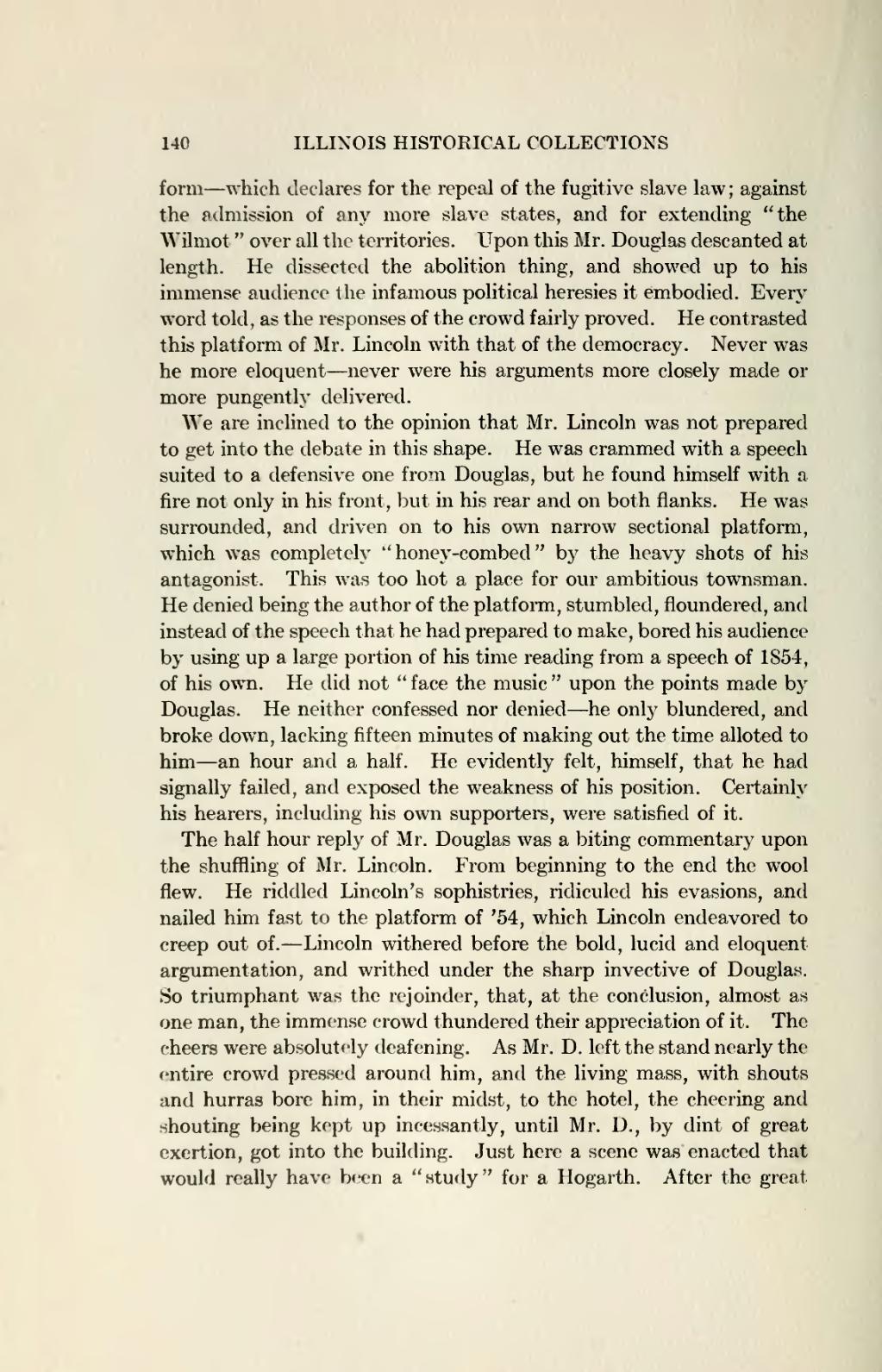form—which declares for the repeal of the fugitive slave law; against the admission of any more slave states, and for extending "the Wilmot" over all the territories. Upon this Mr. Douglas descanted at length. He dissected the abolition thing, and showed up to his immense audience the infamous political heresies it embodied. Every word told, as the responses of the crowd fairly proved. He contrasted this platform of Mr. Lincoln with that of the democracy. Never was he more eloquent—never were his arguments more closely made or more pungently delivered.
We are inclined to the opinion that Mr. Lincoln was not prepared to get into the debate in this shape. He was crammed with a speech suited to a defensive one from Douglas, but he found himself with a fire not only in his front, but in his rear and on both flanks. He was surrounded, and driven on to his own narrow sectional platform, which was completely "honey-combed" by the heavy shots of his antagonist. This was too hot a place for our ambitious townsman. He denied being the author of the platform, stumbled, floundered, and instead of the speech that he had prepared to make, bored his audience by using up a large portion of his time reading from a speech of 1854, of his own. He did not "face the music" upon the points made by Douglas. He neither confessed nor denied—he only blundered, and broke down, lacking fifteen minutes of making out the time alloted to him—an hour and a half. He evidently felt, himself, that he had signally failed, and exposed the weakness of his position. Certainly his hearers, including his own supporters, were satisfied of it.
The half hour reply of Mr. Douglas was a biting commentary upon the shuffling of Mr. Lincoln. From beginning to the end the wool flew. He riddled Lincoln's sophistries, ridiculed his evasions, and nailed him fast to the platform of '54, which Lincoln endeavored to creep out of.—Lincoln withered before the bold, lucid and eloquent argumentation, and writhed under the sharp invective of Douglas. So triumphant was the rejoinder, that, at the conclusion, almost as one man, the immense crowd thundered their appreciation of it. The cheers were absolutely deafening. As Mr. D. left the stand nearly the entire crowd pressed around him, and the living mass, with shouts and hurras bore him, in their midst, to the hotel, the cheering and shouting being kept up incessantly, until Mr. D., by dint of great exertion, got into the building. Just here a scene was enacted that would really have been a "study" for a Hogarth. After the great